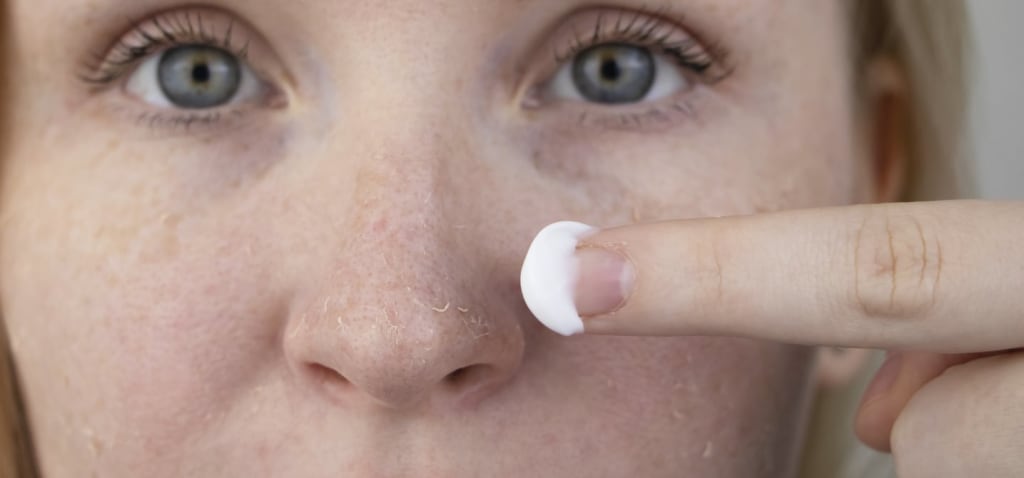Causes and Prevention from Dry Skin
causes of dry skin

Causes and Prevention from Dry Skin
Overview
Dry skin makes the skin rough, itchy, flaky or scaly. The location where these dry patches form vary from person to person. It's a common condition that affects people of all ages.
Dry skin, also known as xerosis or xeroderma, has many causes, including cold or dry weather, sun damage, harsh soaps, and overbathing.
You can do a lot on your own to improve dry skin, including moisturising and practising sun protection year-round. Try various products and skincare routines to find an approach that works for you.
Symptoms
Dry skin have many causes like due to hormonal changes, weather changes and even skin reactions or your body get dehydrated — you might get it only in winter, because mostly in winter people don’t get thirsty and don’t intake water that much. Symptoms includes:
A feeling of skin get tightness
feeling roughness of skin
Itchiness (pruritus) and feeling to scratch the skin.
Slight to severe flaking skin, which causes the ashy look that can affect dry brown and black skin
Slight to severe scaling or peeling
Cracked "dry riverbed" look to leg
Fine lines or cracks
Skin that ranges from reddish on white skin to grayish on brown and black skin
Deep cracks that may bleed
When to see a doctor
Most cases of dry skin respond well to lifestyle changes and home remedies. If your skin looks mild dry then you need to focus on your home remedies that helps the best. You may need help from your primary care doctor or a doctor who specializes in skin conditions (dermatologist) if:
You've tried self-care steps and skin get worse
You feel pain in your skin scalp
You develop a dry, thick skin as a side effect of cancer treatment
Your skin gets rough enough that it get so sensitive that you can’t even sleep and disturb your daily routine
Your skin makes open pores or infections from scratching
Your skin got large areas of scaly or peeling skin
Causes
Dry skin is due to water loss from the outer layer of skin. It might be caused by:
Heat.
Environment..
Too much bathing or scrubbing.
scrubbing your skin
Harsh soaps and detergents.
Other skin conditions. People with skin conditions such as atopic dermatitis (eczema) or psoriasis are more likely to have dry skin.
Medical treatments. Some people develop dry, thick skin after undergoing treatment for cancer, receiving dialysis or taking certain medications.
Aging.
Risk factors
Anyone can develop dry skin. But you're more likely to develop the condition if you:
Are over 40, as the skin's ability to retain moisture diminishes with age
Live in cold, windy conditions or low-humidity climates
Have a job that requires you to immerse your hands in water, such as nursing or hairstyling
Use your hands to work with cement, clay or soil
Swim frequently in chlorinated pools
Have certain diseases or conditions, such as hypothyroidism, diabetes or malnutrition
Prevention
Try these tips to help your skin retain moisture:
Moisturize. Moisturizer seals in water to help keep your skin's protective barrier healthy. Use moisturizer throughout the day, especially on the hands. And before going outdoors, use a moisturizer that contains sunblock or a broad-spectrum sunscreen with an SPF of at least 30, even on cloudy days. Apply sunscreen generously and reapply every two hours — or more often if you're swimming or sweating.
Limit water exposure. Keep bath and shower time to 10 minutes or less. Use warm, not hot, water. Rinse and pat dry. Try to bathe no more than once a day.
Use a gentle cleanser or allergen-free soap. Try a nonsoap cleansing cream or shower gel. Or use fragrance-free moisturizing soap with no alcohol or allergy-causing substances (hypoallergenic soap), especially if you handwash often. Rinse thoroughly and pat dry. Apply a moisturizing cream while your skin is still damp.
Shave with care. Shaving can be drying. If you shave, use a lubricating agent before you start. Shave in the direction of hair growth, unless that irritates your skin. Use a sharp blade and rinse it with warm water after each stroke. When done, apply moisturizer.
Cover as much skin as possible in cold or windy weather. Harsh weather can be especially drying to skin. Scarves, hats, and gloves or mittens help protect your skin when you're outdoors.
Wear gloves. Protect your hands with suitable gloves when gardening, using harsh cleansers and doing other skin-drying activities.
Use Moisturizers: There are hundreds of companies that helps to make your skin moist and try to protect your skin even from sun burn. Try to use sun block creams that helps the best.
Rinse and moisturize after swimming. This is especially important if you've been swimming in a heavily chlorinated pool.
Drink when you're thirsty. Drink noncaffeinated beverages each day to help keep all your body's tissues, including your skin, well hydrated.
Bathe babies with care. For babies, using a cleanser every 1-2 weeks for bathing usually is enough. Otherwise, bathe them in just water. However, clean their diaper area with each diaper change. Apply a thin layer of petroleum jelly (Vaseline, Aquaphor, others) while the skin is still damp.





Comments
There are no comments for this story
Be the first to respond and start the conversation.